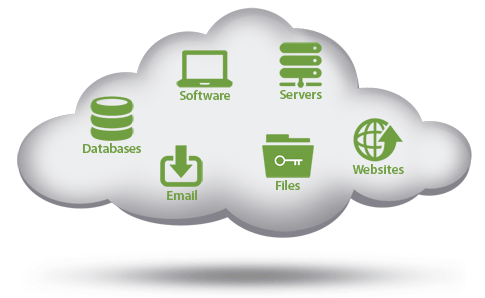Cloud Hosting
Bài đăng này đã không được cập nhật trong 4 năm
Cloud Hosting
In this article I will show you guy about cloud hosting. It's simple to understand cloud hosting and why we need to choose cloud hosting.

What is Cloud Hosting?
Cloud hosting services provide hosting for websites on virtual servers which pull their computing resource from extensive underlying networks of physical web servers. It follows the utility model of computing in that it is available as a service rather than a product and is therefore comparable with traditional utilities such as electricity and gas. Broadly speaking the client can tap into their service as much as they need, depending on the demands of their website, and they will only pay for what they use.
It exists as an alternative to hosting websites on single servers (either dedicated or shared servers) and can be considered as an extension of the concept of clustered hosting where websites are hosted on multiple servers. With cloud hosting however, the network of servers that are used is vast and often pulled from different data centres in different locations.
Practical examples of cloud hosting can fall under both the Infrastructure as a Service (IaaS) and Platform as a Service (PaaS) classifications. Under IaaS offerings the client is simply provided with the virtualised hardware resource on which they can install their own choice of software environment before building their web application. On a PaaS service however, the client is also provided with this software environment, for example, as a solution stack (operating system, database support, web server software, and programming support), on which they can go straight to installing and developing their web application. Businesses with complex IT infrastructures and experienced IT professionals may wish to opt for the more customisable IaaS model but others may prefer the ease of a PaaS option.
A development of the concept of cloud hosting for enterprise customers is the Virtual Data Centre (VDC). This employs a virtualised network of servers in the cloud which can be used to host all of a business’s IT operations including its websites.
The more obvious examples of cloud hosting involve the use of public cloud models - that is hosting websites on virtual servers which pull resource from the same pool as other publicly available virtual servers and use the same public networks to transmit the data; data which is physically stored on the underlying shared servers which form the cloud resource. These public clouds will include some security measures to ensure that data is kept private and would suffice for most website installations. However, where security and privacy is more of a concern, businesses can turn towards cloud hosting in private clouds as an alternative - that is clouds which use ring-fenced resources (servers, networks etc), whether located on site or with the cloud provider.
Reliable

rather than being hosted on one single instance of a physical server the website is hosted on a virtual partition which draws its resources, such as disk space, from an extensive network of underlying physical servers. If one server goes offline, it dilutes the level of resource available to the cloud a little but will have no effect on the availability of the website whose virtual server will continue to pull resource from the remaining network of servers. Some cloud platforms could even survive an entire data centre going offline as the pooled cloud resource is drawn from multiple data centres in different locations to spread the risk.
Scalability and Flexibility
resource is available in real time on demand and not limited to the physical constraints/capacity of one server. If a client’s site demands extra resource from its hosting platform due to a spike in visitor traffic or the implementation of new functionality, the resource is accessed seamlessly. Even when using a private cloud model the service can often be allowed to ‘burst’ to access resources from the public cloud for non-sensitive processing if there are surges in activity on the site.
Cost the cloud hosting

the client only pays for what they actually use. The resource is available for spikes in demand but there is no wasted capacity remaining unused when demand is lower. For example, if you buy the cloud hosting with price 10$/monthly, it means the price 10$ it spends for server 30 days and count price by hours that you use.
The Famous cloud hosting
In this part I will show you guy about the most cloud hosting provider (It is just my experience) about this. It does not mean you need to follow my part. But it is one idea to show you if you are the beginner guy.
In Conclusion
However the way to choose cloud hosting is not difficult but it is depences by your choice, which one do you like ? which location your website is the most visit ? By the way we can say that cloud hosting provider, they have the special of providering.
Document
All rights reserved